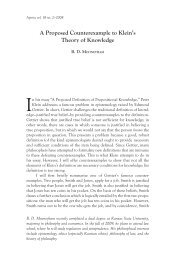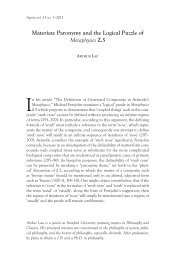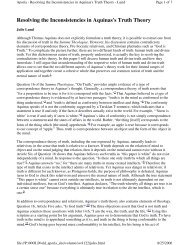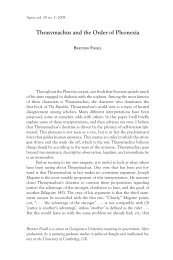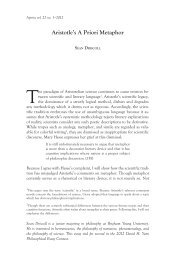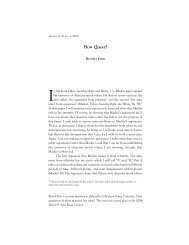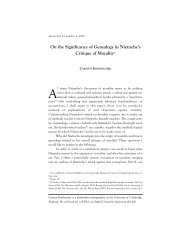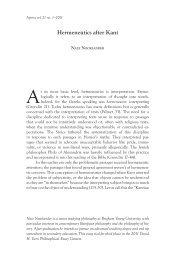Parmenides B6.1â2 without a Modal Fallacy - Aporia - Brigham ...
Parmenides B6.1â2 without a Modal Fallacy - Aporia - Brigham ...
Parmenides B6.1â2 without a Modal Fallacy - Aporia - Brigham ...
You also want an ePaper? Increase the reach of your titles
YUMPU automatically turns print PDFs into web optimized ePapers that Google loves.
Works Consulted<br />
Curd, Patricia. The Legacy of <strong>Parmenides</strong>. Princeton: Princeton UP, 1998.<br />
Kahn, Charles. “The Greek Verb ‘To Be’ and the Concept of Being.”<br />
Foundations of Language 2 (1966): 245–65.<br />
————. The Verb Be in Ancient Greek. Indianapolis: Hackett, 2003.<br />
Mourelatos, Alexander. “Pre-Socratic Origins of the Principle that There<br />
are No Origins from Nothing.” Journal of Philosophy 78.11 (1981):<br />
649–65.<br />
O’Brien, D. “Le Poème de Parménide: Texte, Traduction et Essai Critique.”<br />
Études sur Parmenide. Ed. P. Abenque. Paris: J. Vrin, 1987. 1–324.<br />
Palmer, John. <strong>Parmenides</strong> and Presocratic Philosophy. New York: Oxford UP,<br />
2009.<br />
Robinson, T. M. “<strong>Parmenides</strong> on the Real in its Totality.” Monist 62.1<br />
(1979): 54–60.<br />
Stannard, Jerry. “Parmenidean Logic.” Philosophical Review 69.4 (1960):<br />
526–33.



